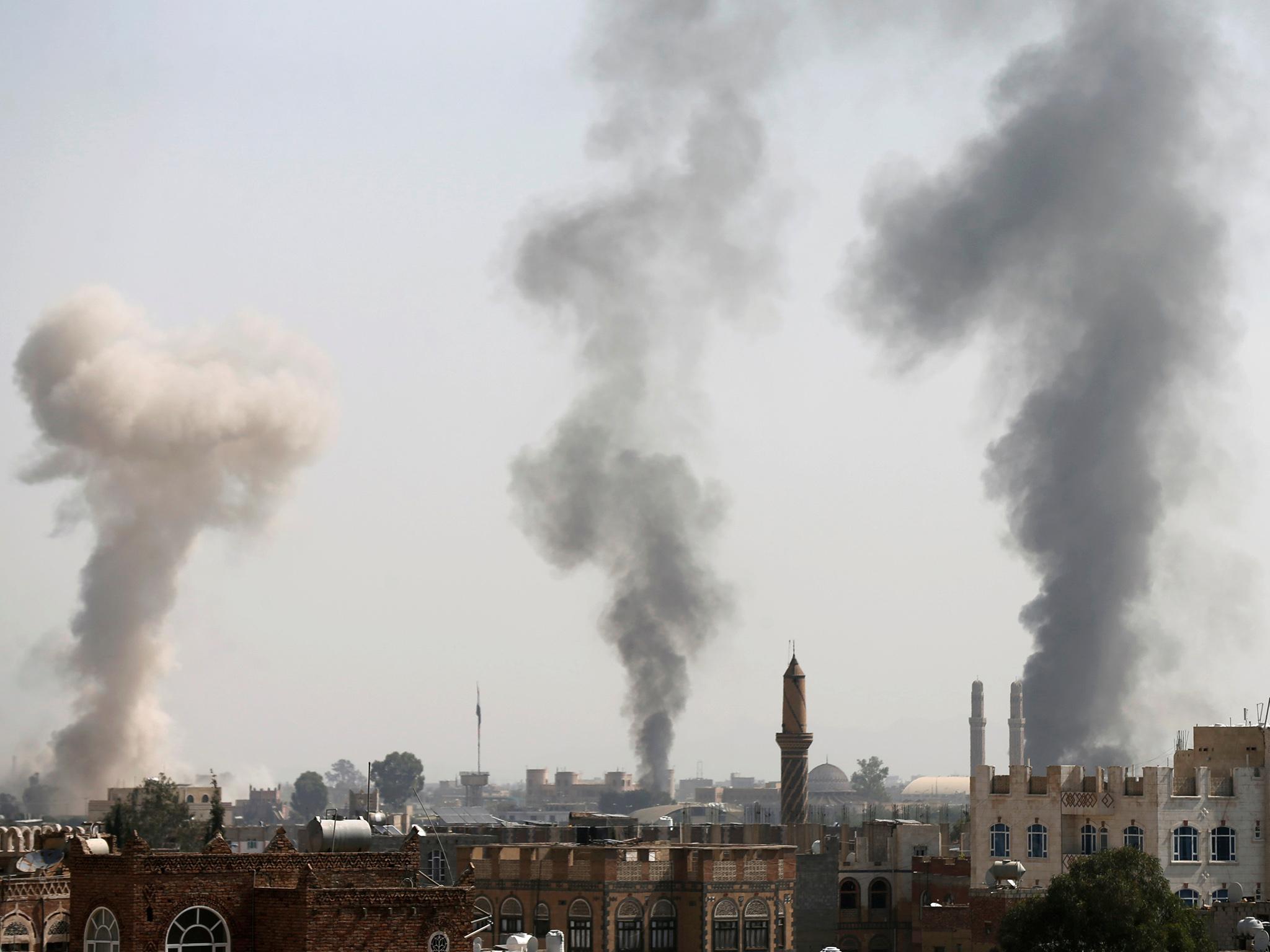Yemen civil war: Both sides in conflict may have committed war crimes, UN says
Human rights organisations call on UK and US to stop supplying weapons in the conflict

Your support helps us to tell the story
From reproductive rights to climate change to Big Tech, The Independent is on the ground when the story is developing. Whether it's investigating the financials of Elon Musk's pro-Trump PAC or producing our latest documentary, 'The A Word', which shines a light on the American women fighting for reproductive rights, we know how important it is to parse out the facts from the messaging.
At such a critical moment in US history, we need reporters on the ground. Your donation allows us to keep sending journalists to speak to both sides of the story.
The Independent is trusted by Americans across the entire political spectrum. And unlike many other quality news outlets, we choose not to lock Americans out of our reporting and analysis with paywalls. We believe quality journalism should be available to everyone, paid for by those who can afford it.
Your support makes all the difference.Both sides in the ongoing conflict in Yemen may have committed war crimes in the three-year civil war, a United Nations body has said.
A group of regional and international experts gathered by the UN said in a report that both the rebel Houthis and the coalition supporting the Yemeni government had “perpetrated – and continue to perpetrate – violations and crimes under international law”.
The crimes include human rights violations such as arbitrary detention, rape, torture and child recruitment, as well as violations of freedom of expression and of economic, social and cultural rights. Some of the violations may amount to war crimes, pending the decision of an independent court, according to the group.
The conflict in Yemen has raged since 2015, when Saudi Arabia formed a coalition to fight back against Houthi rebels who took control of the capital and forced President Abdrabbuh Mansour Hadi to flee.
The coalition officially includes Kuwait, the United Arab Emirates, Bahrain, Egypt, Morocco, Jordan, Sudan and Senegal, but the US has also launched airstrikes on al-Qaeda and Isis targets in the country.
The report specifically mentions the use of airstrikes, which the experts said may violate the principles of distinction, proportionality and precaution. The airstrikes are responsible for the majority of the civilian casualties, the experts said, and have struck residential areas as well as markets, funerals, weddings and medical facilities. An estimated 6,600 civilians have died in the conflict since March 2015, according to the group.
“There is little evidence of any attempt by parties to the conflict to minimise civilian casualties,” the group’s chairperson, Kamel Jendoubi, said in a statement accompanying the 41-page report. “I call on them to prioritise human dignity in this forgotten conflict.”
The report spurred calls to action from humans rights groups such as Save the Children, which called on the UK to immediately suspend arms sales to all parties, and to “make it clear that deliberate or disproportionate attacks on civilians are never acceptable”.
Kristine Beckerle, a researcher for Human Rights Watch, said the report painted a “pretty damning picture” of the airstrikes in Yemen and of the human rights abuses on the ground.
“I would hope that that sort of evidence ... would really push those supporting the coalition currently to reflect and think about the ways in which they can use their leverage, including by stopping weapons supplies,” she told The Independent.
The US, UK and France have all helped supply the Saudi-led coalition with weapons in the conflict. US president Donald Trump resumed the sale of some $500m in munitions to Saudi Arabia shortly after taking office – a sale that had been suspended by former president Barack Obama over concerns about civilian causalities.
The US has accused Iran of arming the Houthi rebels, though the country has denied doing so. In a clear reference to this international involvement, the report calls on foreign countries to “refrain from providing arms that could be used in the conflict”.
US defence secretary James Mattis said on Tuesday that America’s goal was to keep “human cost at an absolute minimum”, but maintained the country’s support for the Saudi-led coalition.
“We reviewed the support for the Arab coalition when we came into office: we determined that it was the right thing to do to support them in the defence of their own countries but also to restore the rightful government there,” Mr Mattis said at a press conference.
Anwar Gargash, foreign affairs minister for the UAE, said on Twitter that the country would review what the report said about “the horrors of the Houthis”. Saudi state media said the coalition had received the report and forwarded it to their lawyers.
The UN experts called on both sides of the conflict to cease violence against civilians, and to allow the “safe and expeditious” entry of humanitarian supplies into the country. They have also submitted a confidential list of people who may have committed international crimes to the UN’s high commissioner for human rights.
Join our commenting forum
Join thought-provoking conversations, follow other Independent readers and see their replies
Comments